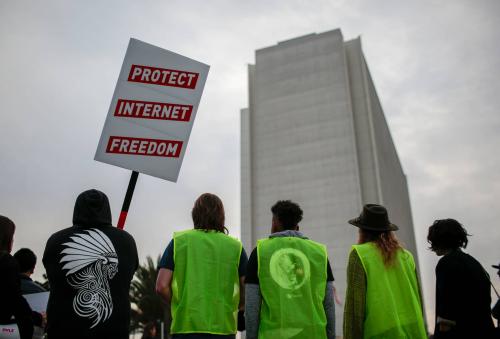The Chinese saying “A new leader lights three bonfires” vividly captures the momentum and accomplishments of Xi’s first year as party boss.
Each of these “three bonfires” — the vigorous anti-corruption campaign, the successful conclusion of the trial of disgraced politician Bo Xilai, and the comprehensive and deeper market reforms embraced at the third plenum — have granted him much needed public support and significantly consolidated his power.
From the first day of his tenure as general secretary of the Party, he admitted to the public that the rampancy of official corruption was ruining the Party and the country.
With Wang Qishan, his most important political ally in the Politburo Standing Committee, Xi launched a tough anti-corruption campaign. Within a year, 11 ministerial and provincial-level senior leaders were arrested, including leaders within the country’s most formidable special interest groups like the oil industry. Some critics may be cynical about the methods employed in the anti-corruption campaign, but the campaign has already transformed the behavior of Chinese officials.
Xi should be credited with the successful completion of the Bo trial, which was the largest legitimacy crisis for the Party since the 1989 Tiananmen Square incident and widely perceived to be a “no-win” situation for the Party leadership. The scandal revealed the fact that some high-ranking Party leaders like Bo — China’s Gatsby — have decadent lifestyles filled with sex, money laundering, and even murder. Xi and his colleagues handled the case wisely in three aspects:
First, they focused on Bo’s corruption, not on his other unlawful behavior. Second, they used social media micro-blogging to disseminate the details of the courtroom proceedings, thus undermining criticism of lack of openness. And third, Bo’s verdict of life imprisonment seemed to be appropriate, neither too severe nor too lenient.
Most importantly, Xi wants to leave a strong mark on the economic front. He has embraced as his mandate the “Chinese dream,” defined as the rejuvenation of the Chinese nation and the opportunity to realize a middle-class lifestyle. The overall objective of his new economic policy, as evident from the third plenum, is to make the private sector the “decisive driver” of the Chinese economy, to make the Chinese middle class happy, and to allow more members of the lower class to attain middle class status.
While Xi’s above three bonfires have resonated well among the general public, there are some valid worries about Xi and his rapidly growing power. Xi’s politically conservative — and sometimes even Mao-style — approach that has relied on tight political control and media censorship has alienated the country’s liberal intellectuals. His broad and strong anti-corruption campaign may also alienate a large number of officials — the very power base on which the Party relies.



Commentary
Op-edXi Jinping’s One Year Report Card
November 20, 2013